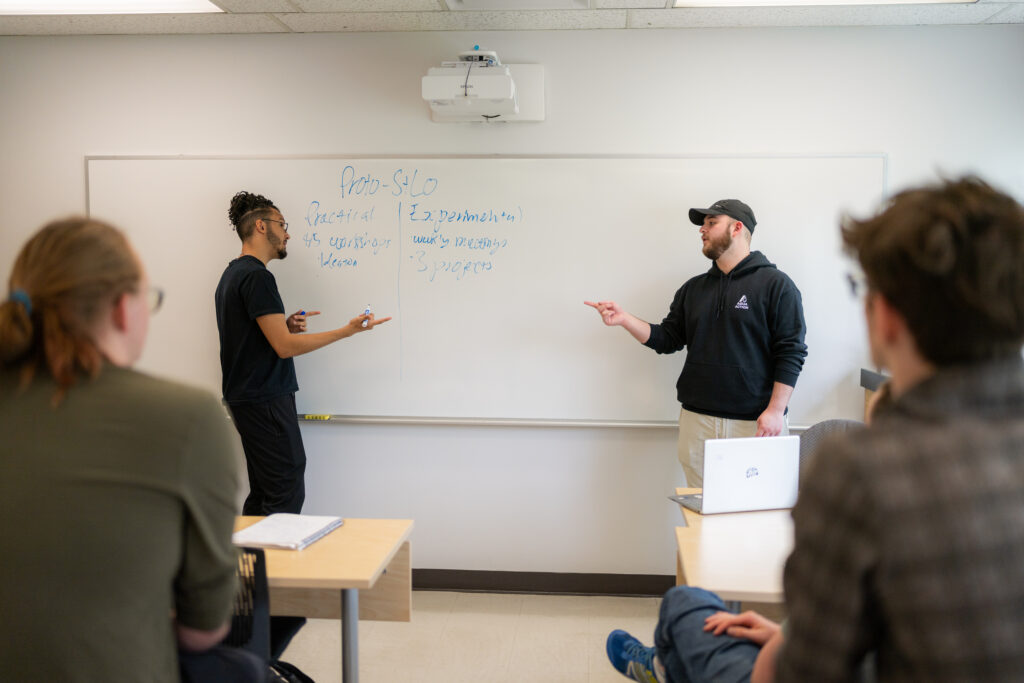200.B1 - Pre-University
Science
The Science program prepares you to succeed in scientific fields at the university level. During your studies, you will have the opportunity to study with highly qualified faculty and work in well-equipped laboratory facilities.
Admission
- Fall
Duration
- 2 years
Interests
- Science
- Health, Wellness & the Body
Requirements
- Chemistry 534 or equivalent
- Physics 534 or equivalent
- Math TS or SN 5
What You Can Expect from the Program
The Science program offers a strong foundation in biology, chemistry, physics, and mathematics, preparing students for a wide range of university programs. With a focus on critical thinking, problem solving, and scientific inquiry, students gain both theoretical knowledge and hands-on experience through lab work and research-based learning.
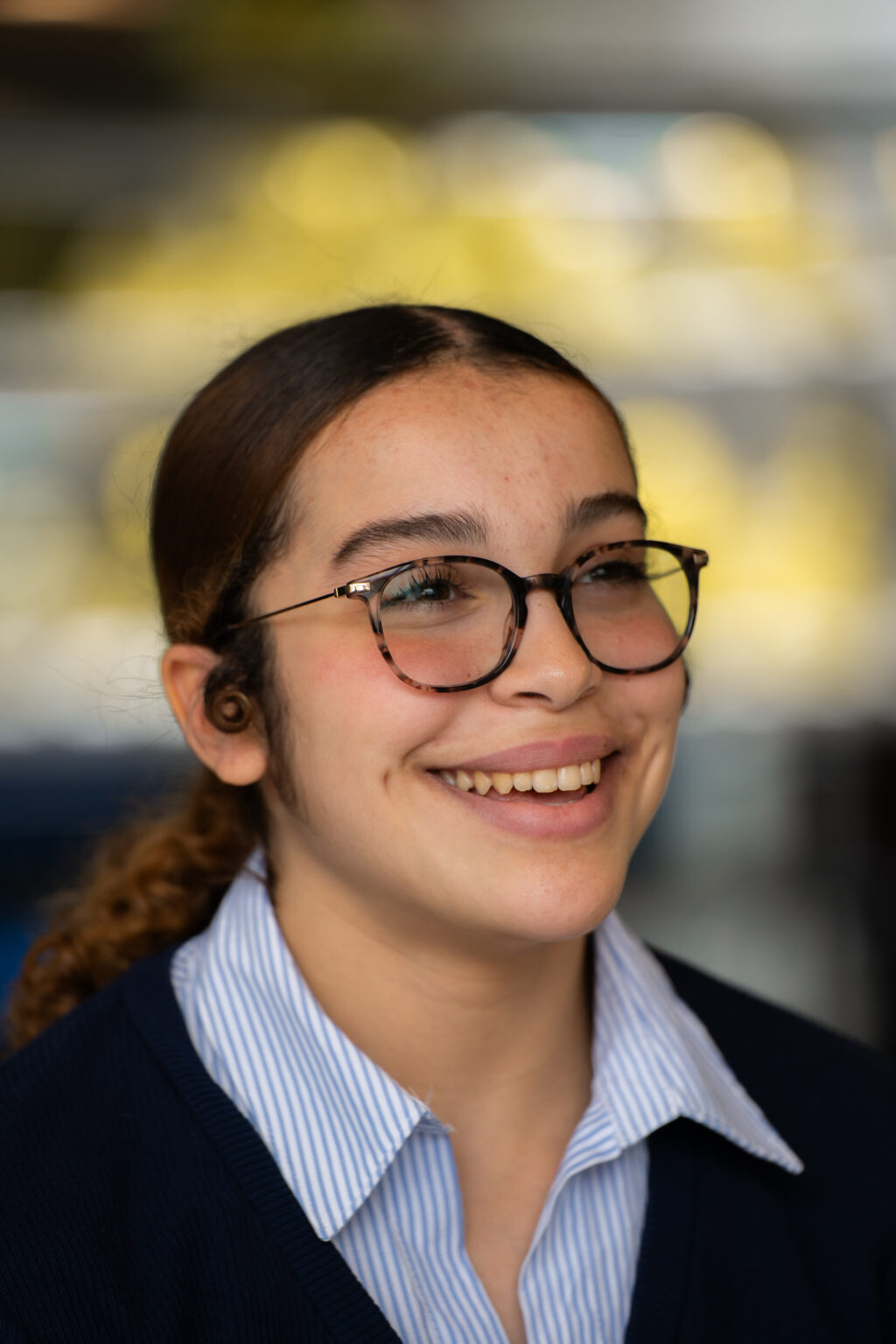
Your Pathway to University-Level Science
Gain valuable experience in a lab full of cutting-edge equipment
With dedicated laboratories for biology, chemistry, and physics, students can put theory into practice through hands-on experiments. Whether you’re culturing cells, running titrations, or exploring forces and energy, you’ll gain the experience to prepare you for any university-level science program.
Gain the prerequisites for university science courses
Both profiles include core science courses such as Differential and Integral Calculus, Properties of Matter, Mechanics and Chemistry of Solutions, which will prepare you for university studies.
Learn from teachers dedicated to your academic success
Our teachers are committed to supporting students beyond the classroom by being accessible for questions, guidance, and extra help. Whether it’s during office hours, via email, or through scheduled one-on-one sessions, our educators are here to ensure every student has the opportunity to fully understand the material and reach their academic goals.
3
Well-equipped labs at your disposal
2
Profiles to choose from
15
Science concentration courses
Take the Lead in Your Studies
There are two profiles to choose from in the Science DEC: the Health Science profile and the Pure and Applied Science profile. Your choice of profile should be based on the admission requirements of the university program you plan to pursue.
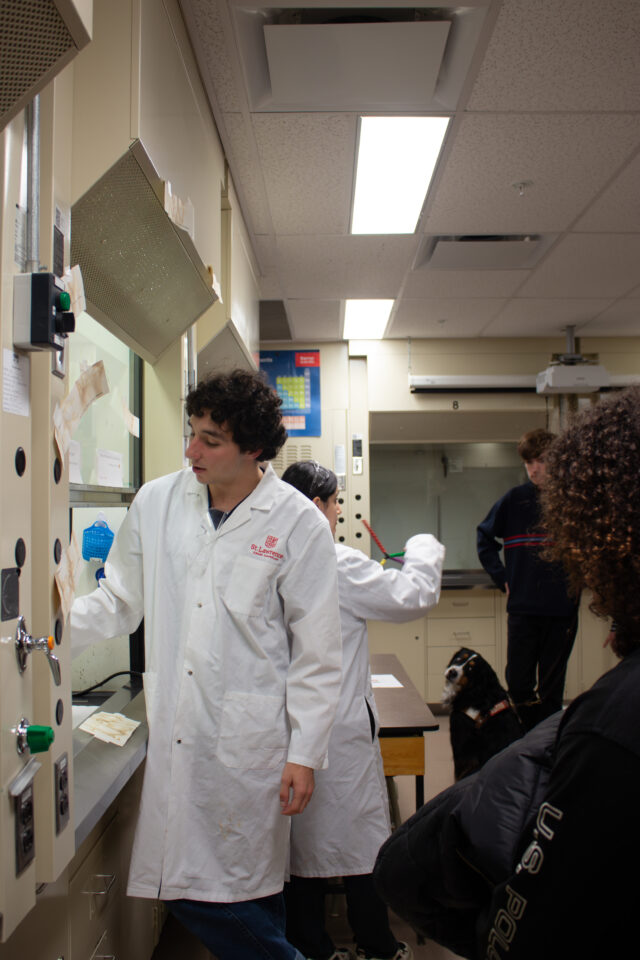
200.B5 Health Science profile
This profile includes courses in human physiology and organic chemistry. It is intended for students who wish to pursue university studies in the health field and allows them to complete the necessary prerequisites.
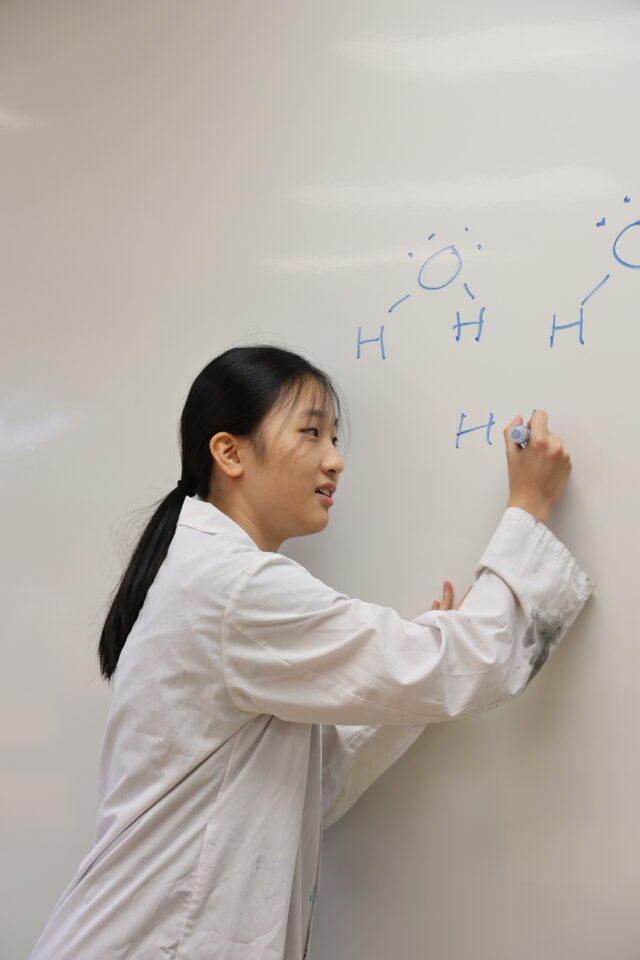
200.B6 Pure & Applied Science profile
This profile is oriented toward those who aim to continue their studies at university in a pure and applied program, or who wish to pursue a more general education in the sciences. It allows students a bit more freedom to explore disciplines of their choice, including such options as Advanced Calculus and Astrophysics.
Choosing the Right Profile for Your Goals
Unsure which profile to pick? The profile you select only determines the science option courses you take during your second year; it is therefore possible to switch profiles during your first year as both profiles have the same pre-requisite courses. Your specific course sequence is determined by your Certificate status and your chosen profile.
If you are eligible to attend English school under the Charter of the French language and are in possession of a certificate granted by the Ministry of Education, you are considered a Certificate Holder. Your course sequence will then be determined by your results in the high school French course (1-2 or 3-4). For more information about Certificates, please consult the Ministry of Education’s website. If you are not eligible, you must follow the course sequence for Non Certificate Holders that prepares students for l’Épreuve uniforme de français (EUF – French ministerial language evaluation).
| Mathematics: |
|
| Chemistry: |
|
| Physics: |
|
| Biology: |
|
| Programming: |
|
Visually, a comparison of the second-year Science concentration courses for our two profiles is shown below.
| Health Science Profile | Pure & Applied Science Profile |
|
|
|
|
|
|
Courses for Health Science
Your specific course sequence is determined by your Certificate status.
Course sequence legend :
(Theory – Laboratory – Personal Work)
- Theory (T): Hours in class per week
- Laboratory (L): Hours of laboratory or internship per week
- Personal Work (P): Estimated personal work hours outside of class
- Total contact hours per week: Hours in class (Theory + Laboratory) for the semester
Courses for Pure & Applied science
Your specific course sequence is determined by your Certificate status.
Your Path to Graduation
All college programs in Québec have a graduate profile that outlines the competencies students are expected to develop to graduate from the program. To assess whether these expectations are met, students must complete a course featuring an integrative activity (IA) that builds on knowledge gained in previous courses.
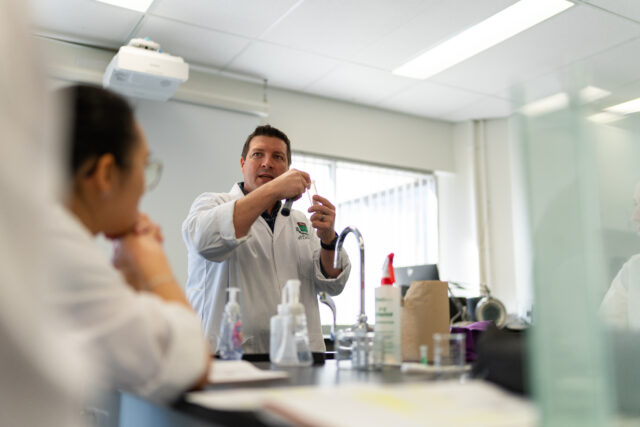
Science Graduate Profile
St. Lawrence Science Program graduates must be able to:
- Apply the scientific method
- Take a systematic approach to problem solving
- Use the appropriate information technologies
- Reason logically
- Communicate effectively
- Learn in an autonomous manner
- Work as members of a team
- Make connections between science, technology and social progress
- Identify their system of values
- Become familiar with the context in which scientific concepts are discovered and developed
- Develop attitudes appropriate for scientific work
- Apply what they have learned to new situations.
These goals are not assigned to specific disciplines. All the courses in the program contribute to the development and evaluation of one or more these skills.
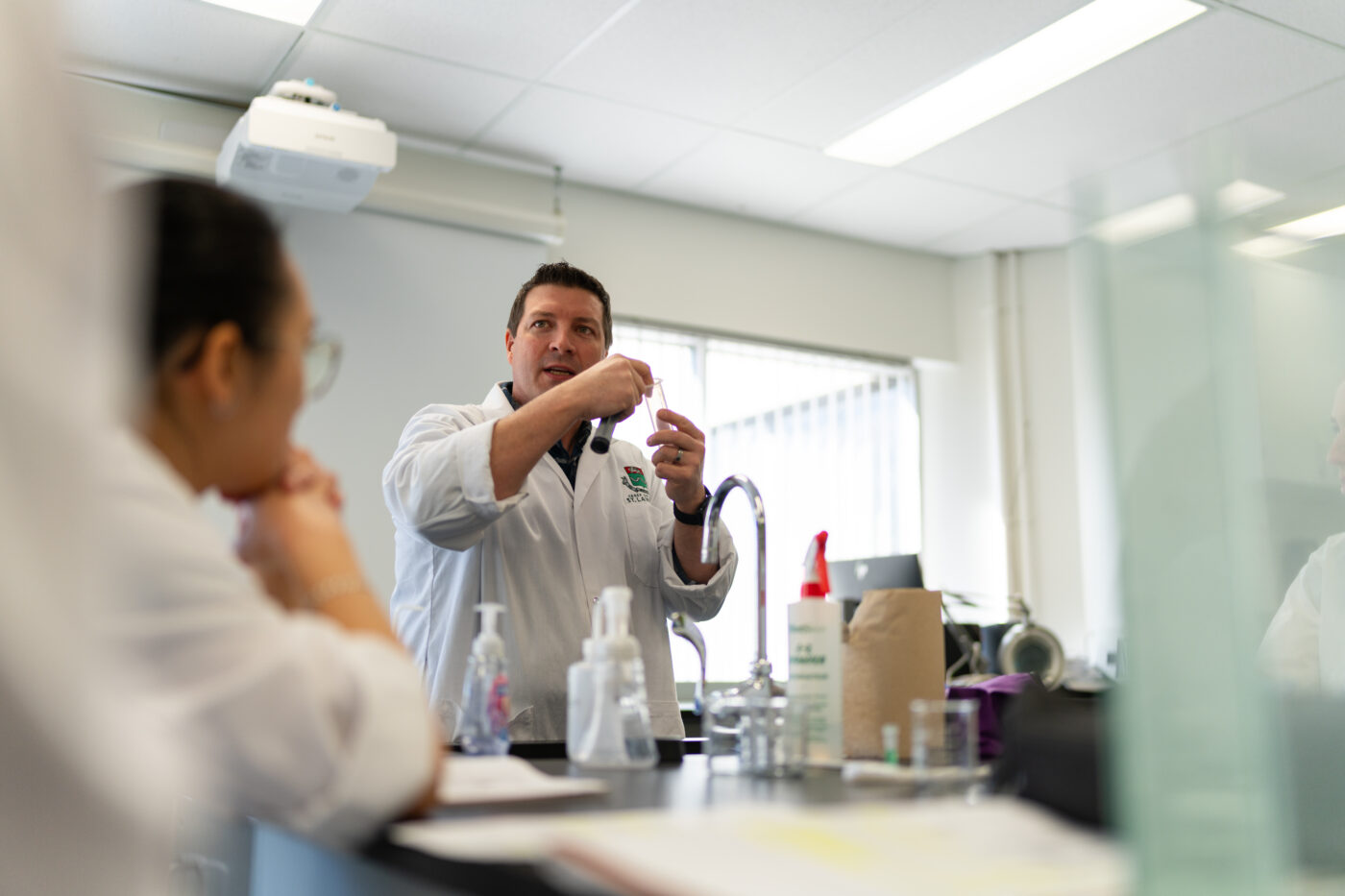
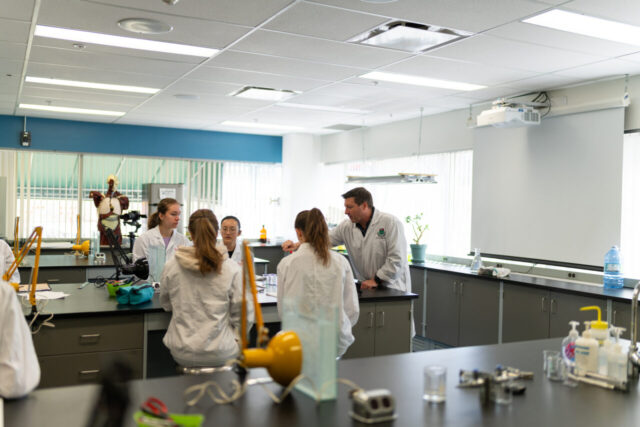
Science Comprehensive Assessment
What will be assessed?
The comprehensive assessment will be completed in the CA/IA option course that you take in your last semester of study. See the CA/IA course descriptions in either of the profiles of the Science Program.
The comprehensive assessment is based on a CA portfolio you produce during the CA/IA course. The portfolio must demonstrate that you have attained the 12 program goals of the graduate profile. It may contain work (tests, assignments, papers and such) completed during any of the courses that you have taken to fulfill the requirements of the Science Program and documents produced for the exercise on ethical issues, as well as the written report for the integrative activity. Alternatively, the portfolio may be made up of a self-reflective essay that evaluates how you have attained the goals and objectives of the Science Program, citing specific examples of what was done to achieve these goals.
The table below shows how the elements of the graduate profile are tied to the CA/IA course objectives or competencies defined by the government.
| Graduate Profile | Integration Objective (00UU)
To apply acquired knowledge to the study of one or more subjects in the sciences |
Science Option Objective (00UV)
To apply the scientific approach in a given scientific field |
| 1. Apply the scientific method
2. Take a systematic approach to problem solving 12.Apply what they have learned to new situations |
To apply the experimental method
To solve problems To recognize the contribution of more than one scientific discipline to certain situations |
To apply techniques of experimentation or validation specific to science
To solve problems using a method proper to science To represent various situations, drawing upon relevant concepts, laws and principles of science |
| 3. Use the appropriate information technologies | To use data-processing technologies | |
| 4. Reason logically | To reason logically | |
| 5. Communicate effectively
|
To communicate effectively | |
| 6. Learn in an autonomous manner
10.Become familiar with the context in which scientific concepts are discovered and developed |
To show evidence of independent learning in their choice of documentation or laboratory instruments | |
| 7. Work as members of a team | To work as members of a team | |
| 8. Make connections between science, technology and social progress | To make connections between science, technology and social progress | |
| 9. Identify their system of values | ||
| 11.Develop attitudes appropriate for scientific work |
How will it be assessed?
The CA portfolio will be prepared individually by each student and handed in for evaluation. The teacher of the CA/IA course will ascertain with a pass/fail grade the attainment of the program skills using the criteria listed in the graduate profile.
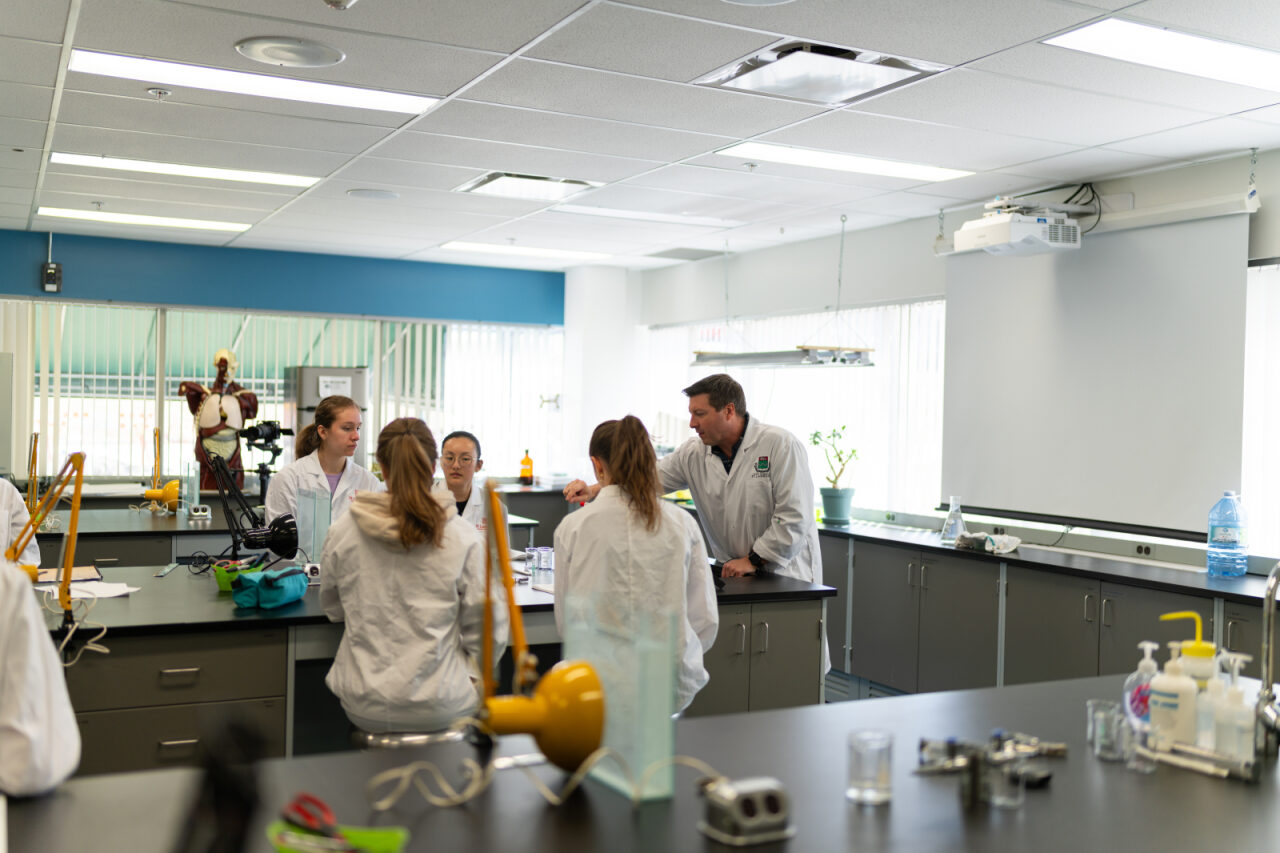
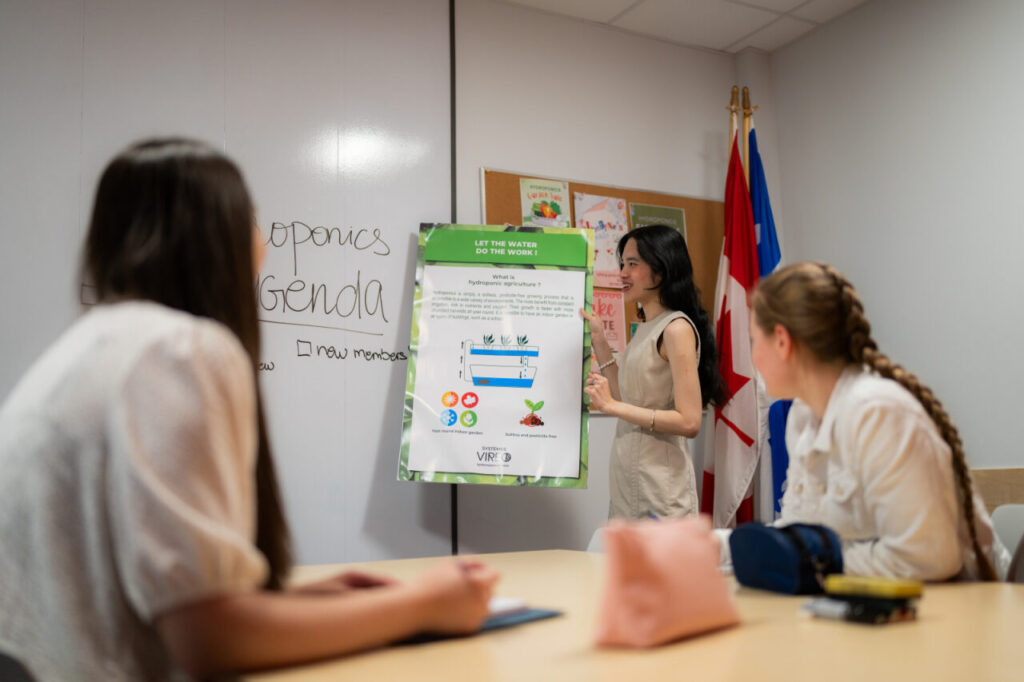
Where Might Science Lead You?
The DEC in Science opens the door to further studies in numerous programs such as:
- Audiology
- Dentistry
- Kinesiology
- Medicine
- Microbiology
- Nursing
- Nutrition
- Occupational Therapy
- Optometry
- Pharmacy
- Physiotherapy
- Veterinary Medicine
- Actuarial Sciences
- Architecture
- Biochemistry
- Biology
- Chemistry
- Computer Science
- Engineering
- Geology
- Geomatics
- Mathematics
- Physics
The Science Student Experience
St. Lawrence offers a wide range of opportunities to gain hands-on experience through clubs, events, and activities. The following clubs may be of particular interest to students in the science program:
- Eco St. Lo and the Hydroponic Garden Club
- Health & Wellness Club
- Proto St. Lo (STEM club)
All extracurricular activities are open to all St. Lawrence students. Visit the Clubs & Sociocultural Activities page for more information and the complete list of clubs.
